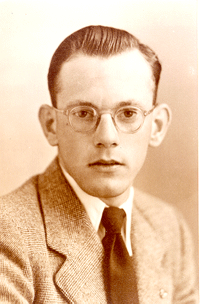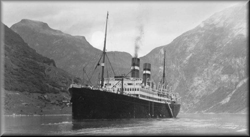Sobey Wall of Honour
Column
52
Row
2
Born in Amsterdam on August 8, 1927 to Wihelmina Heijstee - van der Heijden and Richardes Heijstee, the middle child in a family of seven children. Always the adventurer and looking for a place to escape from poor economic conditions of post-war Netherlands, William decided to emigrate to Canada. Canadian immigration officials found a sponsor and he departed The Netherlands on June 13, 1951 at age 24 and with only $50 in his pocket. Arrived on June 24, 1951 at the port in Québec City. Experienced a week of sickness while crossing the North Atlantic on the old rickety troop ship, S.S. Volendam. Then traveled by train to Barry's Bay via Montreal and Ottawa.
Worked on the sponsor's farm near Palmer Rapids, Ontario for about one year and after fulfilling all obligations of the sponsorship, moved to Ottawa. His fiancée, Cornelia Maria van Wyk, traveled from The Netherlands to join him in the fall of 1952 and they were married on December 6, 1952 within 30 days of her arrival in Canada. After their marriage they lived in Ottawa for a short while, then over a period of about 20 years lived in Edwards, Ramseyville and Carlsbad Springs (Ottawa area). Currently resides near Vernon, Ontario. Father of three children Richard (Toronto), Mary (Ottawa) and William (Cambridge), and grandfather to Mark, Chelsey, Bryan, Steven and Ian.
Recollections of my Journey
Following the end of the Second World War the economy in The Netherlands lay in shambles. Housing was in very short supply, and the population continued to increase. Many people, including myself, saw no future in The Netherlands and began to look elsewhere in the world for a place to start a new life. I looked into the possibility of emigrating to Australia, the United States or Canada, and in the end chose Canada because the ship fare was the least expensive. I also chose Canada because it was a country that was well known to the people of The Netherlands. During the war Princess Juliana and her two young children sought refuge in Ottawa and this received a lot of publicity. The fact that Canadian soldiers were seen as our liberators in the spring of 1945 also influenced my decision to come to Canada. There were also many reports from Canada that it was a land of "unlimited opportunities" and I wanted to take advantage of those opportunities.
Following the war the Dutch and Canadian governments reached an agreement that would allow agriculturists who were willing to work as farm labourers to enter Canada. I, like many others in The Netherlands, had considerable experience as an agriculturalist having worked on various farms and nurseries since the age of 14. I applied for emigration, as an agricultural worker, through the Canadian embassy in The Hague. Before receiving permission to immigrate, I had to pass a physical examination that was administered by a physician at the Canadian embassy. I also had to get tax clearance from the Dutch government before I could obtain my passport. As I recall the Dutch authorities determined that I owed 1200 guilders in income tax, which I had to pay out of my meager savings. I received approval to emigrate to Canada in the spring of 1951. The Canadian embassy arranged sponsorship for me and I was told that my sponsor owned and operated a farm near Barry's Bay, Ontario. I would become one of thousands of Dutch people who would eventually decide to settle and work in Ontario.
On June 13, 1951 I departed from the port of Rotterdam on board the Volendam. I have since read that I was part of a huge wave of Dutch people emigrating to Canada in the early 1950s and that in 1951 alone over 18,000 Dutch people came to Canada. I traveled from Kortenhoef to the port of Rotterdam on a bus with my mother, sister and my fiancée. On the bus trip my wife-to-be and I exchanged engagement rings, and made plans to meet in Canada in about one year's time. I boarded the ship to start my new life with a suitcase and about $50 in my pocket.
The accommodation on the Volendam was very basic since it was a very old ship built in the 1920s and only a few years earlier the ship had been used for transporting troops. I slept in a large cabin lined with bunks and as I recall there were probably 250 men sleeping in the same cabin and the bunks were stacked 3-high. The women and children had to sleep in separate cabins. During the 11-day crossing I was sick for six days due to the small pox vaccination that I received before leaving The Netherlands, spending most of my time in bed and not eating very much. When I felt better, I would spend time lounging on the deck or in the cafeteria having meals.
The ship arrived at Québec City on 24 June 1951. We disembarked onto a dock across the river from the city. After having our papers checked, we immediately boarded a train destined for Montreal and eventually to Ottawa. I arrived in Ottawa at 3 am on Sunday morning and booked a room for two nights in the Windsor Hotel in downtown Ottawa. On Sunday I looked up an organization called the Sisters of Service (a priest on board the ship had given me the name) and they contacted a Dutch woman residing in the west end of Ottawa to see if I could visit her for the afternoon. I went over that afternoon and began a friendship that lasted nearly 45 years until she died at the age of 90. On the Monday I boarded a train at the old Union Station on Rideau Street and traveled to Barry's Bay. I then went by taxi to Palmer Rapids to my sponsor's farm. By the time I arrived at the farm I was penniless since had I spent my last $5 on the taxi.
I worked on this farm, owned by the Wingle family, for about one year until I fulfilled all obligations associated with the sponsorship. During that time I was paid $1.50 per day or $45 per month. I then decided to move to Ottawa to find a place to live and work. Once settled, I wrote Cornelia and asked that she join me in Canada. She arrived in Ottawa on November 8, 1952 and we were married less than one month later on December 6, 1952. We have lived and worked in the Ottawa area every since. We are the proud parents and grandparents of three children and five grandchildren.

